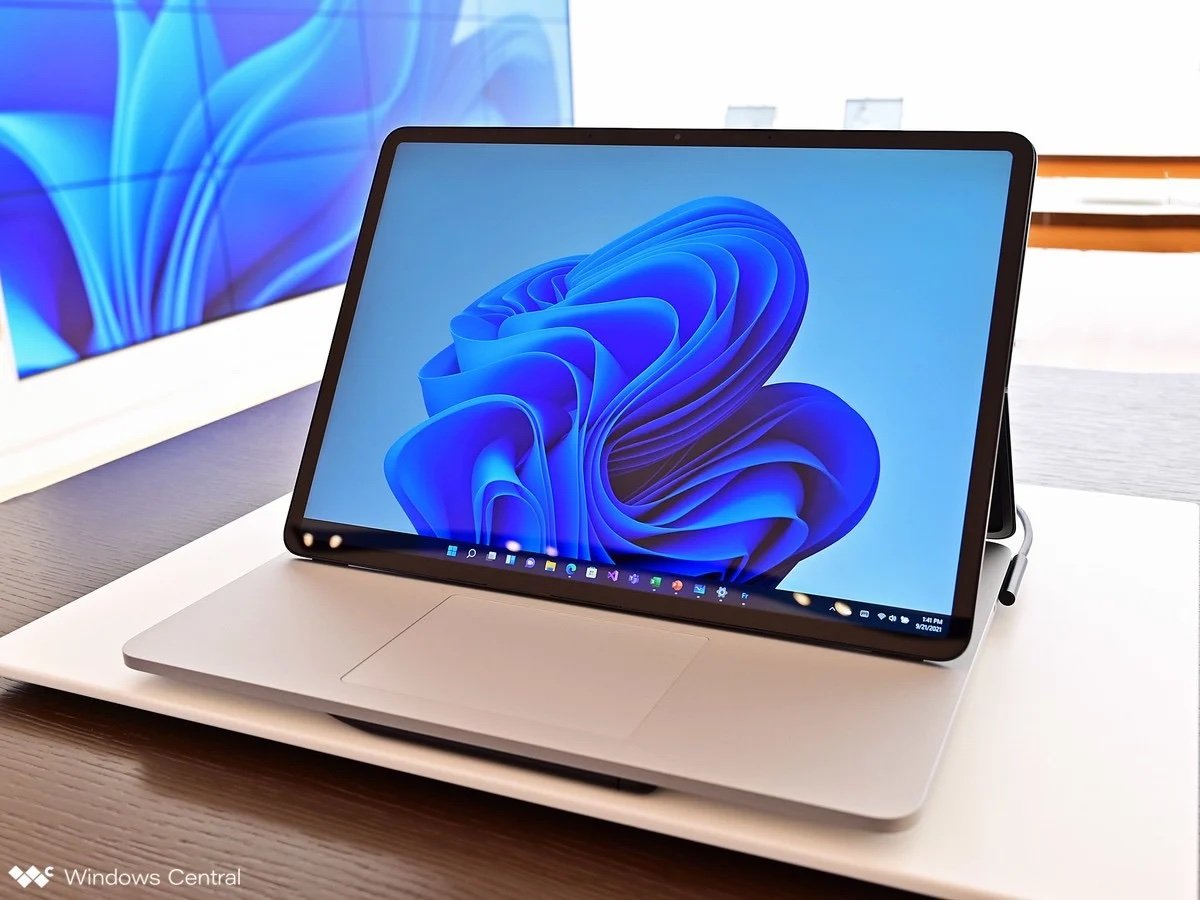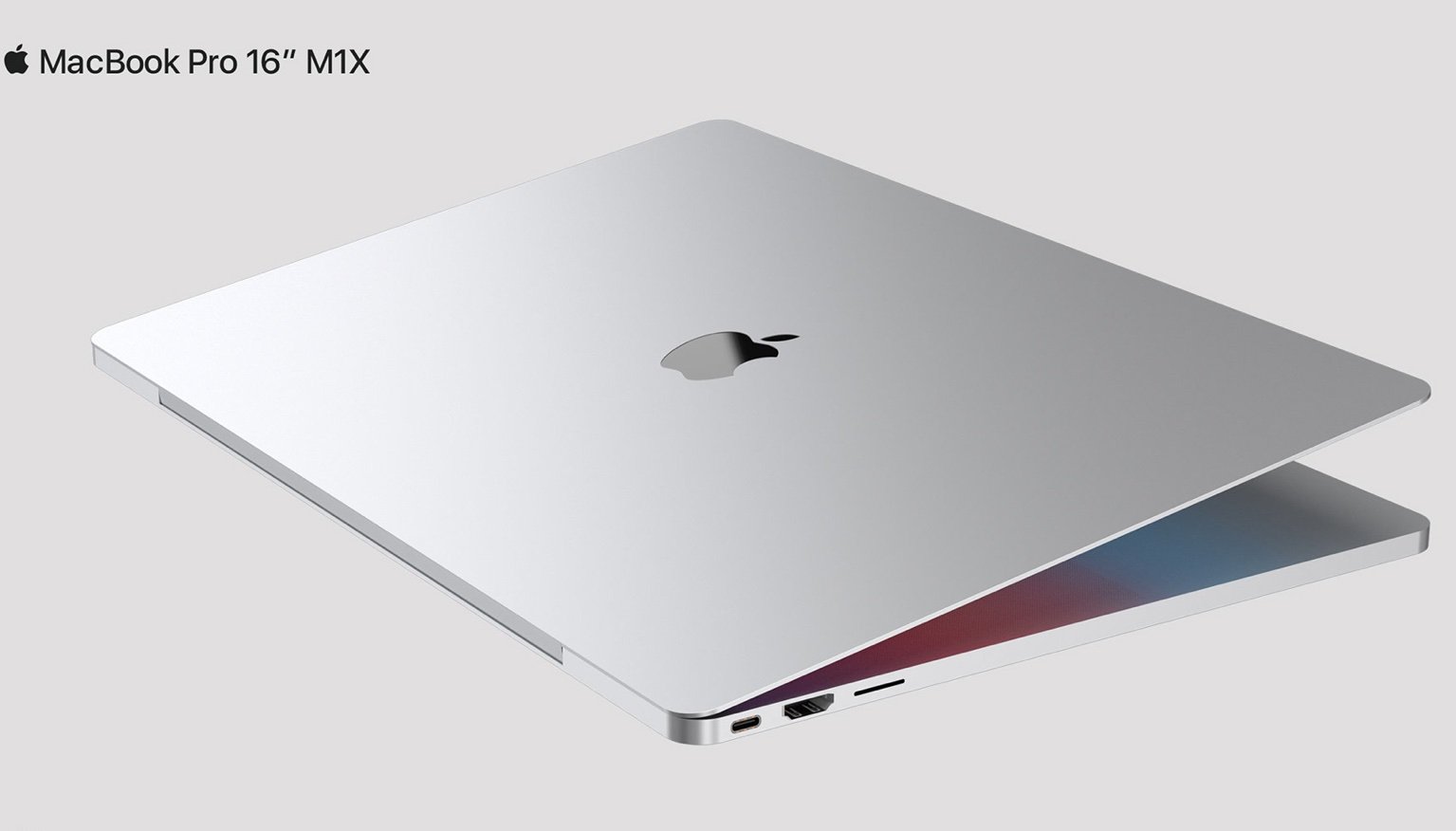Apple's boring MacBook Pro still bests the 'innovative' Microsoft Surface Laptop Studio

iMore offers spot-on advice and guidance from our team of experts, with decades of Apple device experience to lean on. Learn more with iMore!
You are now subscribed
Your newsletter sign-up was successful
Apple is expected to announce two new MacBook Pro models in the coming weeks. If the rumors are correct, each new laptop will feature a thinner bezel, larger display, and redesigned chassis. The incoming 14-inch MacBook Pro and second-generation 16-inch MacBook Pro are also expected to bring back old favorites like MagSafe connectivity, an HDMI port, and an SD card slot.
Would-be buyers will almost certainly embrace the first significant MacBook Pro redesign in five years. And yet, none of the expected changes will come across as nearly as innovative as the recently announced Surface Laptop Studio, which Microsoft CEO Satya Nadella says will create a new laptop category. Or will it?
Something new?
The Surface Laptop Studio features a 360-degree hinge and a stylus that lives on the bottom edge. You can use the device just as you would any other laptop or switch to what Microsoft calls the "stage mode." In this configuration, the display is moved forward over the keyboard and propped up to become tablet-like.
When seen for the first time, the transition between modes impressed even this Apple fan who has grown somewhat tired of seeing the same old MacBooks released each year. Wow was the word to describe my initial reaction.
And yet, for the lack of a better term, once you get past the surface, is Microsoft's newest product really all that innovative? And if so, does it make sense from a practical perspective? Perhaps not.
On Second Thought
As The Verge was the first to point out, the Surface Laptop Studio form factor is neither new nor unique. For example, an IBM ThinkPad maneuvered similarly nearly 30 years ago, as did products from Acer and HP over the years.
According to The Verge, "...if you follow the laptop market anywhere near as closely as I do, it's hard not to look at this device and think, 'Oh boy, another one of these.'"
iMore offers spot-on advice and guidance from our team of experts, with decades of Apple device experience to lean on. Learn more with iMore!
This certainly isn't the first time Microsoft has attempted to make Windows a desktop, laptop, and tablet OS all rolled into one on the software front. I've appreciated the company's grit in trying to make this work across various devices over the year. It almost worked on the Microsoft Book (which the Surface Laptop Studio replaces). However, I have never found Windows on a tablet all that impressive or user-friendly.
And given Microsoft's decision to run Android, not Windows, on the heavily maligned Surface Duo, perhaps it doesn't either.
My point isn't to criticize Microsoft. On the contrary, the company deserves kudos for re-thinking its Surface lineup on an almost yearly basis. And yet, shiny new bells and whistles don't necessarily create a better computing experience — or find success.
MacBook Pro: boring, yes
This brings us back to the MacBook Pro, one of the best Macs on the market. Has the time come for Apple to finally consider releasing an all-in-one laptop to keep up with the folks in Redmond? When looking strictly at sales, the choice seems clear.
The worldwide PC market is currently on an incredible upswing with year-over-year sales rising by 13.2% with Mac sales up 10.2% in the second quarter. of 2021.
Who's dominating the market? Not Microsoft, which isn't even a top-five hardware vendor. Instead, it's Lenovo, followed by HP, Dell, and then Apple.
The bottom line: the data suggests Microsoft's Surface products are mostly niche, and the Surface Laptop Studio isn't likely to change this.
Therefore, it's probably wise for Apple to keep the MacBook Pro form factor essentially the same and avoid making radical changes to the lineup. It also means it's unlikely Apple will ever merge iPadOS and macOS. Indeed, boring seems to work even though some of us might want to see more splash.
Thoughts?
What do you think? Should Apple release an all-in-one computer product or keep its tablets and laptop separate? Let us know in the comments below.

Bryan M. Wolfe has written about technology for over a decade on various websites, including TechRadar, AppAdvice, and many more. Before this, he worked in the technology field across different industries, including healthcare and education. He’s currently iMore’s lead on all things Mac and macOS, although he also loves covering iPhone, iPad, and Apple Watch. Bryan enjoys watching his favorite sports teams, traveling, and driving around his teenage daughter to her latest stage show, audition, or school event in his spare time. He also keeps busy walking his black and white cocker spaniel, Izzy, and trying new coffees and liquid grapes.


